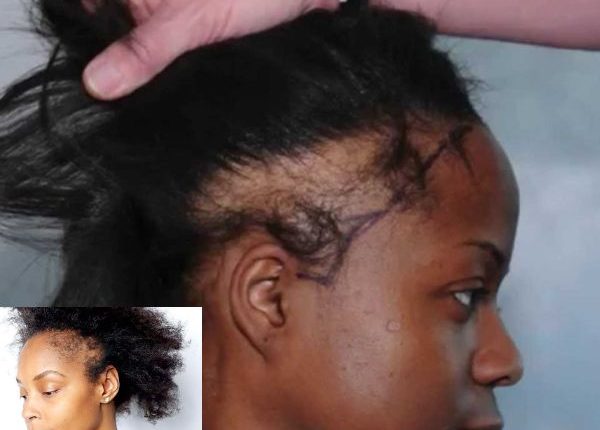Hidden Causes of Hair Damage for African Women – Hair is a crucial aspect of beauty for many African women. However, maintaining healthy hair can be challenging due to the various hidden causes of damage. These causes range from cultural practices to environmental factors. In this article, we will discuss the hidden causes of hair damage for African women and provide tips for preventing them.
Hidden Causes of Hair Damage for African Women
The hidden causes of hair damage for African women are many and varied. Let’s take a look at some of them.
Harsh chemicals
One of the most common causes of hair damage in African women is the use of harsh chemicals. These can include relaxers, straighteners, and dyes. They can strip the hair of its natural oils, leaving it dry and brittle. If not used properly, they can also cause scalp burns.
Heat styling
Heat styling includes flat-ironing, curling, and blow-drying. The high temperatures can weaken the hair shaft and lead to breakage. If you must use heat styling tools, be sure to use a heat protectant spray or serum beforehand.
Genetics
Genetics can also play a role in hair damage. If your mother or grandmother had thinning or breaking hair, you may be more likely to have the same problem. Fortunately, there are products available that can help strengthen weak or thinning hair.
Lack of Proper Hair Care Routine
A lack of proper hair care routine can be a major contributing factor to damaged hair. Without the right products and techniques, it can be difficult to keep your hair healthy and free from damage. Here are some tips on how to create a proper hair care routine that will help prevent damage:
1. Use gentle shampoo and conditioner. harsh detergents can strip your hair of its natural oils, leaving it dry and brittle. Choose products that are designed for your hair type, and use them as directed.
2. Avoid excessive heat styling. Heat styling tools can damage your hair if used too often or too harshly. If you must style your hair with heat, use the lowest setting possible and protect your hair with a heat-protectant product beforehand.
3. Be careful when brushing wet hair. Wet hair is more susceptible to breakage than dry hair, so be gentle when brushing it. Use a wide-toothed comb to avoid tugging at your strands, and take your time detangling knots carefully.
4. Limit chemical treatments. Chemicals such as bleach and perm solutions can weaken your hair and lead to breakage over time. If you do use these treatments, be sure to follow the directions carefully and give your hair time to recover in between treatments.
5. Protect yourhair from the sun . UV rays can cause fading and other types of damage, so it’s important to protect your hair from the sun when possible. Wear a hat or scarf if you’ll be outside for extended periods of time.
6. Moisturize regularly. Dry hair is more susceptible to breakage, so make sure to moisturize your hair regularly with hydrating products such as natural oils or leave-in conditioners.
By following these tips, you can create a proper hair care routine that will help prevent damage and keep your hair looking healthy and strong.
Poor nutrition
Poor nutrition or deficiency in essential nutrients, such as protein and vitamins, can lead to dryness, brittle hair, and even hair loss.
In order to keep your hair healthy, it is important to eat a balanced diet that includes plenty of fruits, vegetables, and whole grains.
You should also avoid processed foods and excessive amounts of sugar. If you are not getting enough nutrients from your diet, you may need to take a multivitamin supplement.
Stress
Stress can lead to a number of problems that can damage your hair, including scalp problems like dandruff and alopecia (hair loss). It can also make your hair follicles weak, causing them to produce thinner and weaker hairs. Reducing stress in your life can help keep your hair healthy and strong.
Environmental factors
Exposure to sun, wind, and humidity can cause hair to become dry, brittle, and prone to breakage.
Preventing Hair Damage Tips
Avoid tight hairstyles: Opt for looser styles that do not pull on the hair.
Limit chemical treatments: Reduce the frequency of chemical treatments and opt for natural alternatives. Natural products are gentle on our hair and won’t strip away its natural oils or cause any other damage.
There are a few things to keep in mind when choosing natural products for your hair. First, make sure that the product is free of sulfates, parabens, and other harsh chemicals. Second, look for products that contain ingredients like shea butter, coconut oil, and jojoba oil, which will help to nourish and protect your hair.
Reduce heat styling: Allow hair to air dry whenever possible and use heat styling tools sparingly.
Protect hair from environmental factors: Wear a hat or scarf when outdoors and use a leave-in conditioner to protect hair from humidity.
Eat a balanced diet: Consume foods rich in protein, vitamins, and minerals to support healthy hair growth.
FAQs
Q. Can wearing a wig cause hair damage? A. Yes, wearing a wig can cause hair damage if it is too tight or worn for extended periods.
Q. How can I tell if my hair is damaged? A. Signs of hair damage include split ends, dryness, brittleness, and breakage.
Q. Is it possible to repair hair damage? A. While it is not possible to repair hair that has already been damaged, it is possible to prevent further damage and promote healthy hair growth.
Conclusion: Maintaining healthy hair is a priority for many African women. However, hidden causes of hair damage can make this task challenging. By avoiding tight hairstyles, reducing chemical treatments and heat styling, protecting hair from environmental factors, and eating a balanced diet, women can prevent hair damage and promote healthy hair growth. Home










